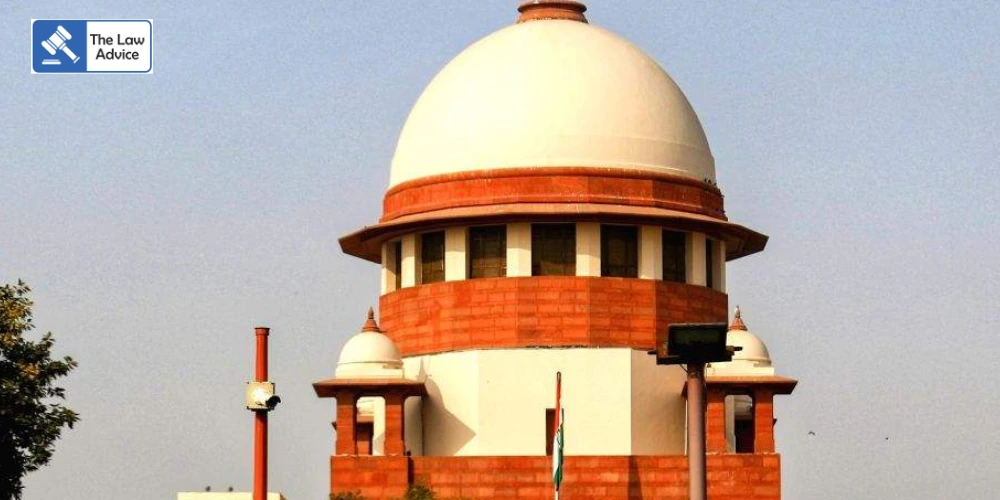New Delhi, Sep:
The Supreme Court on Monday reaffirmed the settled legal position that ownership rights in immovable property cannot be transferred without a registered sale deed. The apex court held that documents such as an Agreement to Sell, General Power of Attorney (GPA), affidavits, receipts, or even a registered Will cannot, by themselves, confer title over property.
A Bench of Justices Aravind Kumar and Sandeep Mehta allowed the appeal filed by Ramesh Chand, setting aside concurrent findings of the trial court and the Delhi High Court, which had upheld the claim of his brother, Suresh Chand, to ownership of the disputed property.
The plaintiff-respondent, Suresh Chand, asserted that in 1996 he had purchased the property from his father through a bundle of documents – an Agreement to Sell, GPA, affidavit, receipt, and a registered Will. On this basis, he sought possession, mandatory injunction, and declaration of ownership, while alleging that his brother, the defendant, was merely a licensee who had subsequently attempted to illegally sell part of the property to a third party.
The defendant-appellant, Ramesh Chand, countered by arguing that the property had been orally gifted to him by their father in 1973, and that he had been in possession ever since. He challenged the plaintiff’s documents as being legally insufficient to confer ownership and sought recognition of his own rights.
Both the trial court and the Delhi High Court sided with the plaintiff, leading to the present appeal before the Supreme Court.
Delivering judgment, Justice Aravind Kumar underscored the fundamental difference between a sale deed and an agreement to sell, as codified under Section 54 of the Transfer of Property Act, 1882.
1. Agreement to Sell ≠ Transfer of Ownership
• The Court observed that an agreement to sell is merely a promise that a sale will take place under agreed terms.
• It does not, by itself, transfer ownership or create any charge or interest in the property.
• “At best, it entitles the purchaser to seek specific performance for execution of a registered sale deed. But it cannot be treated as a deed of conveyance,” the Court held.
2. GPA is Not a Sale
• Rejecting the plaintiff’s reliance on a GPA, the Court reiterated that a power of attorney is an instrument of agency, not a conveyance deed.
• “A GPA only authorises the agent to act on behalf of the principal. Even if the GPA allows certain transactions, it cannot by itself create ownership rights in favour of the holder,” the Bench noted.
• In this case, the GPA only empowered management of the property, including letting out and mortgaging, but was silent on transfer of title.
3. Suspicious Will
• The plaintiff also relied on a Will said to be executed by their father in his favour.
• However, the Court found the Will surrounded by serious suspicions, noting that the father had four children but had allegedly bequeathed the entire property to one son without explanation.
• “It is highly unlikely that a father would exclude three children without any evidence of estrangement. Mere registration of a Will does not by itself prove its validity when suspicious circumstances remain unexplained,” the judgment read.
This judgment is consistent with the Supreme Court’s landmark ruling in Suraj Lamp & Industries Pvt. Ltd. v. State of Haryana (2011), where the Court categorically declared that so-called “GPA sales” or transfers based on agreements to sell do not confer ownership.
In Suraj Lamp, the Court had warned against the widespread misuse of GPA and agreement-to-sell transactions as substitutes for registered sale deeds, often used to evade stamp duty and registration laws. Monday’s ruling reaffirms that position, strengthening the legal principle that registered conveyance is the sole mode of transferring property ownership in India.
Allowing the appeal, the Supreme Court held that the plaintiff had failed to establish valid ownership through the documents relied upon. The suit was dismissed in its entirety.
Cause Title: Ramesh Chand (D) through LRs v. Suresh Chand & Anr.
Key Takeaways
• Agreement to Sell: Creates only a contractual right to seek sale deed; does not transfer ownership.
• General Power of Attorney: Merely an authority to act; not a conveyance of property.
• Will: Even if registered, must be free from suspicious circumstances to be valid.
• Sale Deed: A registered sale deed is the only legally valid instrument to transfer ownership of immovable property.
